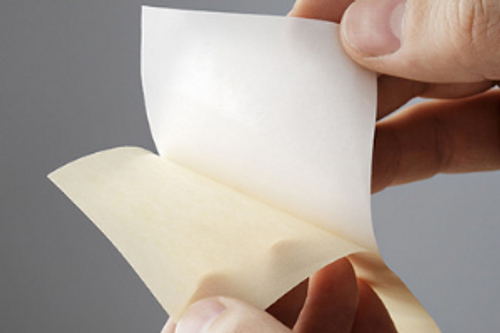Eco-Friendly Stickers, Labels and Tape: Find The Right Match For Your Packaging
Posted on Feb 5th 2019
Eco-friendly Stickers & Tape: What's Right For Your Packaging?
Packing tape, stickers and labels are often misunderstood. We frequently get questions like:
"Should I choose your cello tape, kraft flatback tape or water activated tape?"
"Do you offer biodegradable stickers?"
These are great questions because it means companies are looking to truly and fully green their packaging!
But the questions also reflect the misunderstood nature of the world of packaging adhesives. When thinking about your ideal sticker, label or packaging tape material, you can't look at sustainability in isolation .

Instead, you'll want to match the material and end of life characteristics of the label or tape face stock and adhesive with whatever package it will be applied to.
Here's a few examples of great intentions that don't result in the most sustainable outcome:
- Corrugated shipper box with a biodegradable, renewable plastic tape: While a corrugated shipping box technically can be composted, it is much preferred (and most likely) to be recycled. In fact, over 70% of shipping boxes are recycled in the US! Biodegradable plastic would be a contaminant that gets filtered out when the box is repulped. This is not a terrible outcome because tape makes up such a small amount of the overall box material. However, a paper-based tape with recycle-friendly adhesive would be preferred.
- Recyclable poly mailer with a 100% recycled paper sticker: The ideal end of life for this mailer is to be recycled along with other plastic film (i.e. at a grocery drop off), where it typically becomes composite materials (such as TREX lumber). The recycled paper sticker is a contaminate in this plastic recycling stream. A small amount is okay, but too much breaks down the equipment that re-pelletizes the recycled plastic.
- Compostable poly mailer with a recyclable, direct thermal shipping label: The ideal end of life for the poly mailer is to be composted in an industrial facility. Most direct thermal shipping labels have polymers in their coatings that enable the thermal printing process to take place. Additionally, thermal shipping labels typically do not have compost-friendly adhesives. The poly mailer with the label may be accepted by a compost facility, but it certainly contaminates the resulting compost.
None of the above situations are necessarily dire because stickers, labels and tape make up a small amount of the overall packaging material. But over time, if too many companies mismatch materials in this way, it could become problematic for reclaimers and/or composting facilities.
Match Shipping Accessories to Main Packaging Material
When looking for the most sustainable choice, take the time to match the end of life properties of the label or tape material (and its adhesive) with the ideal end of life properties of your main shipping package. The result may, at times, surprise you!
When using paper-based packaging:
The most likely, and preferred, end of life situation for paper packaging is recycling. Look for a sticker, label or tape made with paper and a water activated or recycle compatible pressure sensitive adhesive.
Many water-activated tapes are reinforced with fiberglass. For heavy packages and for standard shipping boxes (RSC boxes), this reinforcement is important because it ensures the package is not damaged in transit. This fiberglass is removed when boxes are repulped and screened. For lighter boxes or presentation style boxes (such as a literature mailer or tab locking box), non-reinforced water activated tape typically works well.
Where possible, look for facestock made with recycled content.
When using recyclable poly-based packaging:
The optimal label would be made with polyethylene, the type of plastic that poly and bubble mailers are made of. This way, poly film reclaimers can process the facestock with the mailer, without dealing with contamination. Unfortunately, polyethylene labels or stickers are not very common and EcoEnclose does not yet offer this. Reclaimers like TREX have stated that they prefer a paper facestock over any other material. They are well equipped to deal with a small amount of paper contaminant (more so than other contaminants such as BOPP, vinyl, stone paper, etc).
While poly bag reclaimers are currently able to handle a small amount of contamination, you can support the recycling stream by asking your customers to cut out the shipping label before recycling their bag.
When using certified compostable bioplastic packaging:
Look for labels made with paper or certified compostable bio-based material, that have a certified compostable adhesive, and compost-friendly inks. The entire label itself as well as the ink that is being used on it should be certified as compostable.
Avoid These Facestock Materials Altogether
While these facestock materials do have some interesting eco-minded characteristics, they will never match the material or ideal end of life situation of your main packaging.
Vellum: Even vellum that is 100% recycled is typically made with plasticized cotton, so it has a thin poly-based coating on it, and the material is neither recyclable nor compostable.
Biostone: Markets itself as a tree-free label that is made with stones. Biostone is made of calcium carbonate that is bonded using HDPE (high-density polyethylene), a type of plastic. This mix of materials means it is non-recyclable.
Shop EcoEnclose Eco-Friendly Stickers and Labels
Eco-friendly stickers and shipping labels are available on our unique Zero Waste Release Liner that is recycled and recyclable.
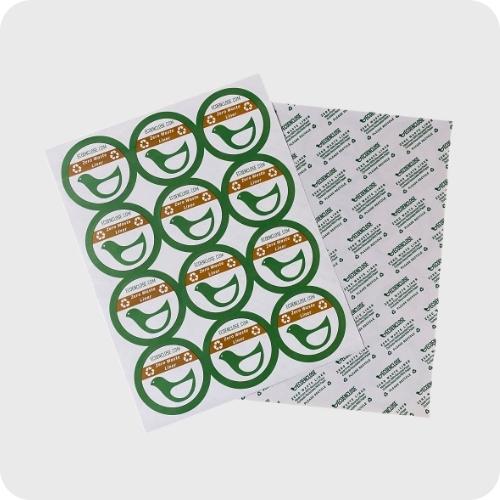
Custom Stickers
100% post-consumer waste paper stickers are available on our unique Zero Waste liner that is 100% recycled and curbside recyclable.
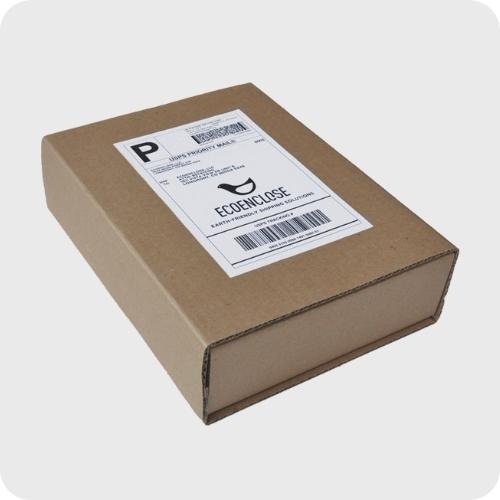
Shipping Labels
100% post-consumer waste shipping labels are available on our unique Zero Waste liner that is 100% recycled and curbside recyclable.
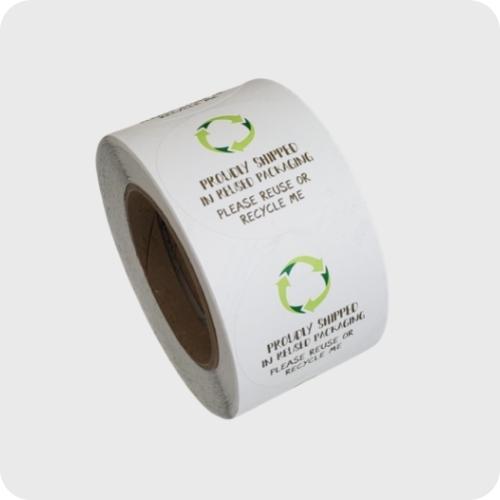
Eco-Designed Stickers
Stock stickers in a variety of sustainable designs to convey your eco-friendly commitment. Available on our Zero Waste liner.
Shop EcoEnclose Carton-Sealing Tape
Water-Activated and Pressure-Sensitive tape ensure recyclers can easily recycle your packaging. Tape dispensers make for easy application.
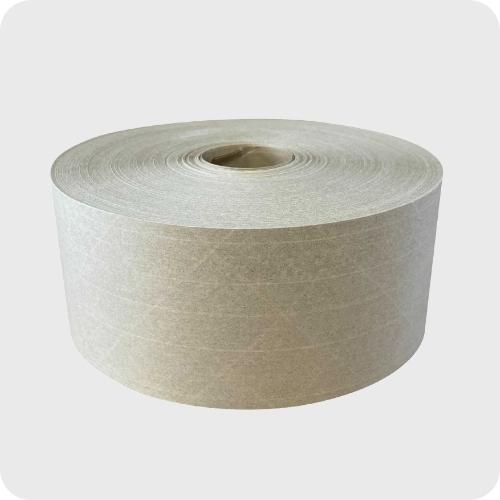
Water-Activated Tape
Tamper-resistant tape activated by water. Requires less material per seal than pressure-sensitive tape. Available reinforced with fiberglass.
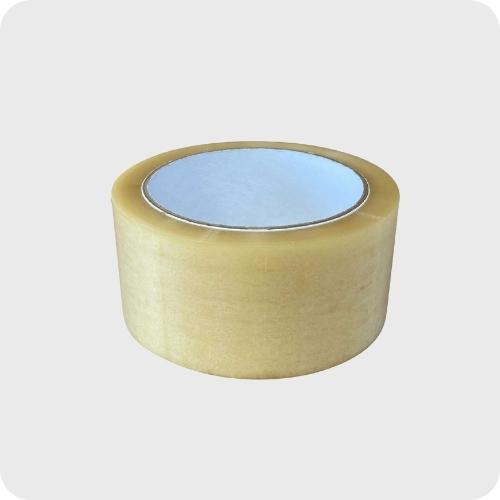
Cello Tape
A clear tape ideal for lower-volume and lightweight applications. Entirely plant-derived, renewable, and industrially compostable.
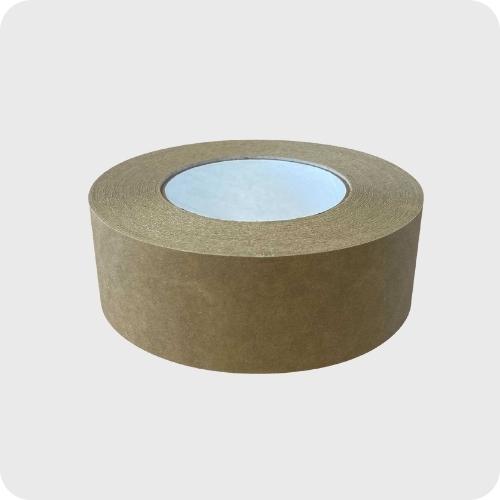
Kraft Flatback Tape
A paper tape ideal for lower-volume and lightweight applications. Paper facestock with a rubber adhesive. Recycle-compatible.

Dispensers
Various manual and electric tape dispensers are available for our water-activated tape to ensure ease of application and operational efficiency.


